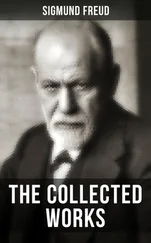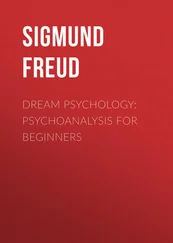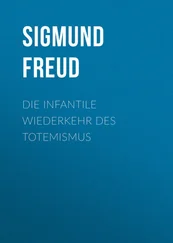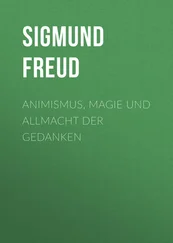This procedure is readily described, although its practice demands instruction and experience. Suppose the patient is suffering from intense morbid dread. He is requested to direct his attention to the idea in question, without, however, as he has so frequently done, meditating upon it. Every impression about it, without any exception, which occurs to him should be imparted to the doctor. The statement which will be perhaps then made, that he cannot concentrate his attention upon anything at all, is to be countered by assuring him most positively that such a blank state of mind is utterly impossible. As a matter of fact, a great number of impressions will soon occur, with which others will associate themselves. These will be invariably accompanied by the expression of the observer's opinion that they have no meaning or are unimportant. It will be at once noticed that it is this self–criticism which prevented the patient from imparting the ideas, which had indeed already excluded them from consciousness. If the patient can be induced to abandon this self–criticism and to pursue the trains of thought which are yielded by concentrating the attention, most significant matter will be obtained, matter which will be presently seen to be clearly linked to the morbid idea in question. Its connection with other ideas will be manifest, and later on will permit the replacement of the morbid idea by a fresh one, which is perfectly adapted to psychical continuity.
This is not the place to examine thoroughly the hypothesis upon which this experiment rests, or the deductions which follow from its invariable success. It must suffice to state that we obtain matter enough for the resolution of every morbid idea if we especially direct our attention to the unbidden associations which disturb our thoughts —those which are otherwise put aside by the critic as worthless refuse. If the procedure is exercised on oneself, the best plan of helping the experiment is to write down at once all one's first indistinct fancies.
I will now point out where this method leads when I apply it to the examination of dreams. Any dream could be made use of in this way. From certain motives I, however, choose a dream of my own, which appears confused and meaningless to my memory, and one which has the advantage of brevity. Probably my dream of last night satisfies the requirements. Its content, fixed immediately after awakening, runs as follows:
"Company; at table or table d'hôte…. Spinach is served. Mrs. E.L., sitting next to me, gives me her undivided attention, and places her hand familiarly upon my knee. In defence I remove her hand. Then she says: 'But you have always had such beautiful eyes.'…. I then distinctly see something like two eyes as a sketch or as the contour of a spectacle lens…."
This is the whole dream, or, at all events, all that I can remember. It appears to me not only obscure and meaningless, but more especially odd. Mrs. E.L. is a person with whom I am scarcely on visiting terms, nor to my knowledge have I ever desired any more cordial relationship. I have not seen her for a long time, and do not think there was any mention of her recently. No emotion whatever accompanied the dream process.
Reflecting upon this dream does not make it a bit clearer to my mind. I will now, however, present the ideas, without premeditation and without criticism, which introspection yielded. I soon notice that it is an advantage to break up the dream into its elements, and to search out the ideas which link themselves to each fragment.
Company; at table or table d'hôte. The recollection of the slight event with which the evening of yesterday ended is at once called up. I left a small party in the company of a friend, who offered to drive me home in his cab. "I prefer a taxi," he said; "that gives one such a pleasant occupation; there is always something to look at." When we were in the cab, and the cab–driver turned the disc so that the first sixty hellers were visible, I continued the jest. "We have hardly got in and we already owe sixty hellers. The taxi always reminds me of the table d'hôte. It makes me avaricious and selfish by continuously reminding me of my debt. It seems to me to mount up too quickly, and I am always afraid that I shall be at a disadvantage, just as I cannot resist at table d'hôte the comical fear that I am getting too little, that I must look after myself." In far–fetched connection with this I quote:
"To earth, this weary earth, ye bring us,
To guilt ye let us heedless go."
Another idea about the table d'hôte. A few weeks ago I was very cross with my dear wife at the dinner–table at a Tyrolese health resort, because she was not sufficiently reserved with some neighbors with whom I wished to have absolutely nothing to do. I begged her to occupy herself rather with me than with the strangers. That is just as if I had been at a disadvantage at the table d'hôte . The contrast between the behavior of my wife at the table and that of Mrs. E.L. in the dream now strikes me: "Addresses herself entirely to me."
Further, I now notice that the dream is the reproduction of a little scene which transpired between my wife and myself when I was secretly courting her. The caressing under cover of the tablecloth was an answer to a wooer's passionate letter. In the dream, however, my wife is replaced by the unfamiliar E.L.
Mrs. E.L. is the daughter of a man to whom I owed money ! I cannot help noticing that here there is revealed an unsuspected connection between the dream content and my thoughts. If the chain of associations be followed up which proceeds from one element of the dream one is soon led back to another of its elements. The thoughts evoked by the dream stir up associations which were not noticeable in the dream itself.
Is it not customary, when some one expects others to look after his interests without any advantage to themselves, to ask the innocent question satirically: "Do you think this will be done for the sake of your beautiful eyes ?" Hence Mrs. E.L.'s speech in the dream. "You have always had such beautiful eyes," means nothing but "people always do everything to you for love of you; you have had everything for nothing ." The contrary is, of course, the truth; I have always paid dearly for whatever kindness others have shown me. Still, the fact that I had a ride for nothing yesterday when my friend drove me home in his cab must have made an impression upon me.
In any case, the friend whose guests we were yesterday has often made me his debtor. Recently I allowed an opportunity of requiting him to go by. He has had only one present from me, an antique shawl, upon which eyes are painted all round, a so–called Occhiale, as a charm against the Malocchio . Moreover, he is an eye specialist . That same evening I had asked him after a patient whom I had sent to him for glasses .
As I remarked, nearly all parts of the dream have been brought into this new connection. I still might ask why in the dream it was spinach that was served up. Because spinach called up a little scene which recently occurred at our table. A child, whose beautiful eyes are really deserving of praise, refused to eat spinach. As a child I was just the same; for a long time I loathed spinach , until in later life my tastes altered, and it became one of my favorite dishes. The mention of this dish brings my own childhood and that of my child's near together. "You should be glad that you have some spinach," his mother had said to the little gourmet. "Some children would be very glad to get spinach." Thus I am reminded of the parents' duties towards their children. Goethe's words—
"To earth, this weary earth, ye bring us,
To guilt ye let us heedless go"—
Читать дальше












